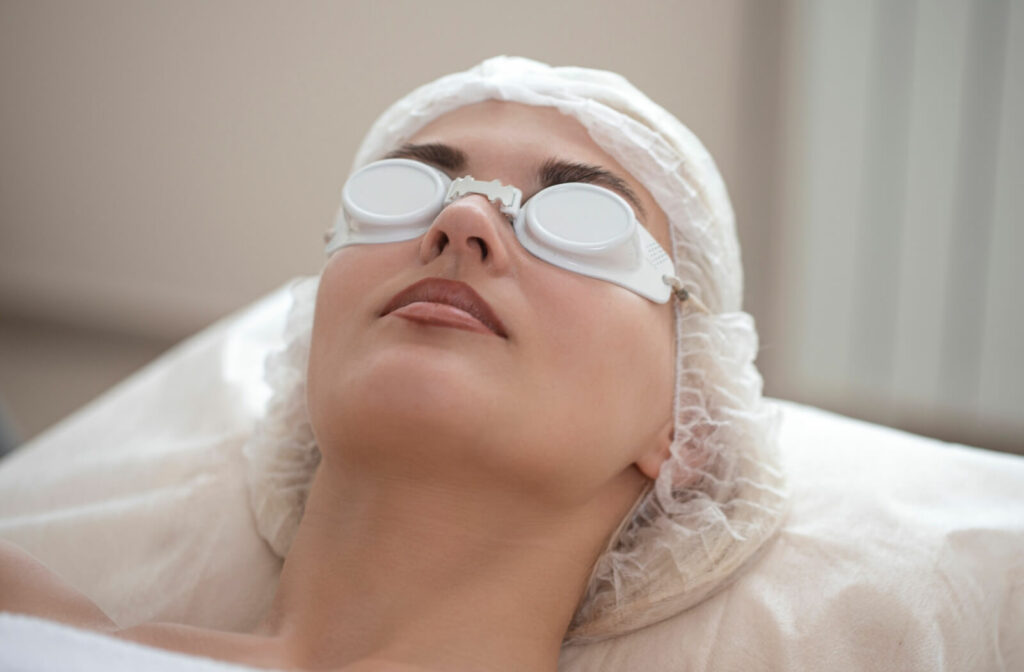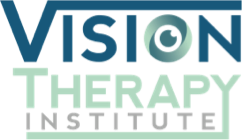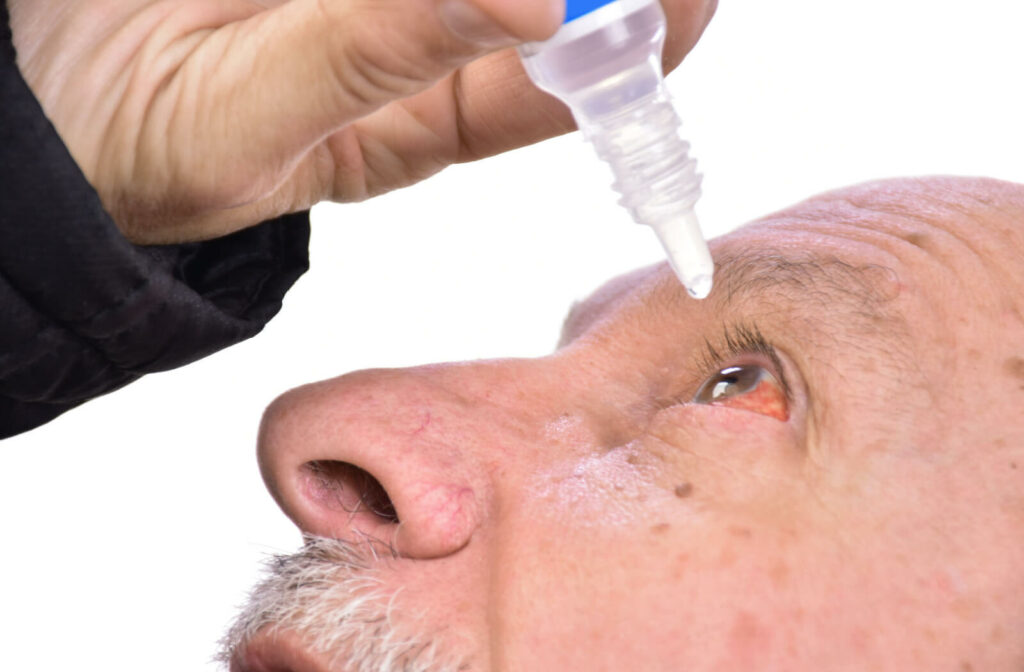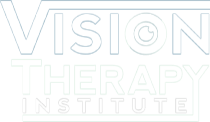Dry eye disease is a widespread and common issue for up to 49 million Americans. This chronic condition can have a significant impact on your quality of life, causing a foreign body sensation in your eyes, pain, blurry vision, and dry or watery eyes. Untreated, it can even lead to further eye health complications.
Despite these constant detrimental effects on quality of life, many dry eye sufferers are not aware that they’re suffering from dry eye disease or that real treatments exist. Instead, they just live with the discomfort.
Many factors can contribute to dry eye, including age, medications, medical conditions, environmental factors, and more. In fact, you can have dry eye even if your eyes do not feel dry. But don’t go running for every lubricating eye drop you can find! With advances in technology and medicine, your local dry eye experts can offer various treatments to alleviate frustrating symptoms.
We’re proud to offer OptiLight by Lumenis to our patients, specially designed for dry eye management.
What Is Dry Eye?
Dry eye occurs when there is an imbalance in the production and drainage of tears, resulting in redness, inadequate lubrication and moisture on the eye’s surface. There are 2 types of dry eye:
- Aqueous deficient dry eye happens when the lacrimal glands fail to produce enough tears to lubricate the eyes.
- Evaporative dry eye is caused by a lack of oil in the tear film, resulting in the quick evaporation of tears.
Intense pulsed light (IPL) can be used to target evaporative dry eye. Oil is an integral part of your tear film. Specifically, it’s integral in keeping your tear film from evaporating; when it’s blocked, dry eyes are a likely outcome.
Since the meibomian glands in your eyelids secrete this oil, this type of dry eye is typically caused by meibomian gland dysfunction (MGD) and accounts for a whopping 85% of dry eye cases.
Causes of Dry Eye
Various factors can increase your risk of developing dry eye, including:
- Aging: Our eyes produce fewer tears as we age, making us more prone to dry eye.
- Medical conditions: Certain medical conditions, such as Sjögren’s syndrome, rheumatoid arthritis, and diabetes, can cause dry eye.
- Medications: Some medications, such as antihistamines, decongestants, and antidepressants, can reduce tear production and cause dry eye.
- Environmental factors: Dry climates, wind, and smoke can cause tears to evaporate more quickly.
- Extended screen time: Most of us use a computer often, and we love our phones, but prolonged use of digital screens can make us blink less. Blinking is required to refresh our tear film, so it’s possible for your eyes to dry out while scrolling the internet.
Symptoms of Dry Eye
The symptoms of dry eye can vary from mild to severe, and they may include:
- Gritty, burning, or stinging sensation in the eyes
- Redness in the eyes
- Blurred vision
- Sensitivity to light
- Eye fatigue
- Excessive tearing (your eyes may attempt to create more tears to compensate for the dryness)
- Difficulty wearing contact lenses

What Is OptiLight by Lumenis?
OptiLight by Lumenis is a light-based, non-invasive treatment done in the area below the eyes to manage dry eye. The first and only IPL FDA-approved for dry eye management.
The treatment is safe, gentle, and is backed by more than 20 clinical studies.
How Does It Work?
OptiLight uses precise pulses of light to reduce the inflammation that is typically associated with dry eye disease, improve tear break-up time, and increase meibomian gland functionality.
This application can significantly relieve dry eye indicators and has a multi-factorial effect, including:
- Increasing tear break-up time
- Reducing the amount of Demodex mites and bacteria living around your eyes
- Eliminating blood vessels that contribute to inflammation
- Improving meibomian gland functionality
Will the OptiLight by Lumenis Work for Me?
While OptiLight by Lumenis is an effective dry eye management solution, we want to make sure it’s right for you. We do not recommend this treatment if you:
- Suffer from aqueous deficiency dry eye (rather than evaporative dry eye or meibomian gland dysfunction)
- Have a history of keloid scarring
- Have severe scarring around your eyes
Ultimately, your doctor is the only person who can determine whether this option is right for you. During your next appointment, ask us if you are a good candidate for OptiLight by Lumenis.
Finding Relief from Dry Eyes
In addition to IPL, many other treatments are available for dry eye, including eye drops, prescription medications, and lifestyle changes such as avoiding eye irritants and taking breaks from digital devices. IPL treatment often works effectively with other methods, and Vision Therapy Institute is proud to have helped many people find relief from their symptoms.
Don’t let dry eyes ruin your day. If you’re experiencing dry eye discomfort, book an appointment with our team today!





